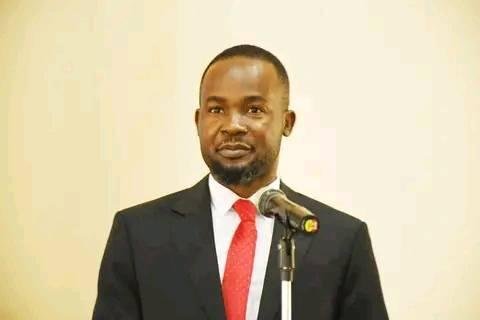
At the 19th CII India Africa Business Conclave, held in New Delhi on 20th August 2024, H.E. Mr. Sosten Gwengwe, M.P., Minister of Trade and Industry of the Republic of Malawi, underscored the critical importance of transportation in the context of Africa’s urbanization and sustainable development, particularly in alignment with Malawi’s long-term development strategy, Malawi Vision 2063.
Malawi Vision 2063 is a grand and ambitious blueprint for the nation’s future, built on three key pillars: agriculture, commercialization, industrialization, and urbanization. Minister Gwengwe emphasised that transportation is at the heart of this vision, as it determines how people and goods move across the country. “As we discuss the challenges and opportunities of urbanization, transportation emerges as a critical factor. How we move our people from one place to another is central to our development strategy,” he stated.
The Minister highlighted the dual importance of transport and energy systems as fundamental enablers of sustainable urbanization. He explained that without a robust and efficient transport system, the goals of urbanization and industrialization would remain elusive. “We view this theme through two important lenses, especially as we strive to achieve our Malawi Vision 2063. Transport and energy systems are key enablers for sustainable urbanization, and thus, sustainable mobility for our people,” he noted.
Minister Gwengwe provided a sobering perspective on the current state of Malawi’s transportation infrastructure. The country, with a population exceeding 20 million, imports around 2 million liters of fuel daily, all of which is transported by trucks. Despite the increasing demand, Malawi’s transportation network remains limited, with very few cargo trains and a reliance on road transport. “Our population exceeds 20 million and continues to grow, yet our transportation infrastructure remains limited. We have very few cargo trains, and in some cases, these trains serve dual purposes, carrying both commercial goods and passengers,” he explained.
The Minister also raised concerns about the sustainability of the current transport system, not only for Malawi but for Africa and the world at large. He posed a critical question: “Is this transport system sustainable, not only for Malawi or Africa but for the world as a whole?” He stressed the need for innovation in addressing these challenges and expressed optimism about the role of key industry players in shaping the future of mobility in Africa. “I believe that innovation is imperative. I am encouraged by the presence of key players in this room—Tata Motors, Ashok Leyland, and the Mahindra Group—who are pivotal in shaping the future of mobility in our regions,” he remarked.
Looking ahead, Minister Gwengwe urged a reevaluation of the current transportation model, where multiple vehicles per household and limited rail infrastructure dominate. He emphasized that the future of mobility in Africa would depend on strong partnerships between the public and private sectors. “Looking ahead to the next 20 to 30 years, we must ask ourselves: Can the current model, where families own multiple vehicles and where countries with growing populations rely on limited rail and road infrastructure, truly carry us into the future? The answer, I believe, lies in forming robust partnerships between the public and private sectors,” he asserted.
He further elaborated on the roles of the public and private sectors in this transformation. The public sector, according to Minister Gwengwe, must create incentives that make sustainable mobility attractive, while the private sector should bring in the necessary investment and expertise. “From the public sector’s perspective, our role is to create incentives that attract investment in sustainable mobility. We must make it appealing for people to transition from traditional modes of transportation to innovative and sustainable alternatives. Meanwhile, the private sector’s role is to bring in the much-needed investment and expertise to drive these changes,” he elaborated.
Energy, particularly in the context of green minerals, was another critical area highlighted by the Minister. He spoke about Malawi’s efforts in harnessing green minerals, such as lithium, which are essential for the production of batteries and other components vital to the electric vehicle (EV) industry. “Energy has been rightly identified as a key enabler of sustainable transportation. In Malawi, we have made significant strides in harnessing green minerals, which are essential for the production of lithium batteries and other components vital to the electric vehicle (EV) industry,” he said. He encouraged the transport sector to look beyond merely providing vehicles and to consider investing in the primary minerals that will power the EVs of the future.
Africa, with its rapid population growth and urbanization, presents immense opportunities for innovation in sustainable transportation. Minister Gwengwe urged stakeholders to start thinking now about how to meet the transportation needs of this evolving continent. “Africa presents immense opportunities. With rapid population growth and urbanization, we must start thinking now about how to sustain the transportation needs of this evolving continent,” he urged.
Leave a Reply